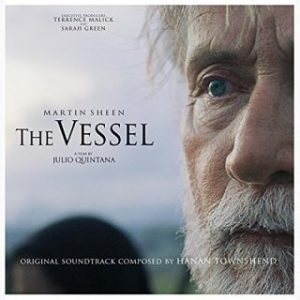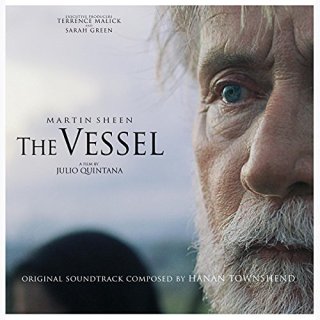The Vessel
Posted on September 13, 2016 at 7:07 pm
B+| Lowest Recommended Age: | Mature High Schooler |
| MPAA Rating: | Rated PG-13 for some partial nudity/sensuality and thematic elements |
| Profanity: | None |
| Alcohol/ Drugs: | Alcohol |
| Violence/ Scariness: | Devastating tragedy (off-screen), some peril |
| Diversity Issues: | None |
| Date Released to Theaters: | September 16, 2016 |

Like Malick, Quintana lets the story unfold slowly, with a dreamy quality, allowing the audience to discover the story rather than serving it to us. There is a narrative voiceover from Leo (Lucas Quintana), a man who lives with his mother, a woman closed off in a deep silence. He cares for her tenderly, patiently. Leo tells us that all of the women in his community wear black in a sort of contest. Whoever puts aside mourning clothes first will lose some unspoken contest. And so we begin to discover she is not the only person in this Spanish-speaking town on the ocean who has had a tragic loss. The entire community has been devastated. They can barely speak. They seem stuck in grief, with no way to return to any part of their lives.
An American-born priest (Martin Sheen, a performance of deep grace and generosity) tries to help. He does everything he can. He listens. He counsels and commiserates. He gently urges. He prays. But nothing changes.
And then, Leo does something. What is a vessel, after all? The word can mean a ship or a container for liquids or a biological or botanical term for a physical delivery system. And poetically it can be used for a human body as the container for a soul. All of the above applies here, with images of water to underscore the metaphor. Leo begins to build something, not sure why or what he will do when it is finished. The priest opposes it; for him it is a distraction, a rival to the church, a golden calf. And yet, the community begins to see it as a portal to a return to themselves. They will never forget. They will never be free from pain. But for the first time, they begin to see the possibility that they might not be numb anymore.
This is a gentle, poetic, touching film, itself a vessel with a message of hope. It does not pretend to answer the question of why bad things happen to good people, but it reminds us that when they do, there are other good people paying attention.
Parents should know that this movie includes themes of devastating loss, some peril, and a brief sexual situation with some nudity
Family discussion: What do we learn from the different ways of grieving? Why did the boat make a difference?
If you like this, try: “The Sweet Hereafter” and “Tree of Life”

